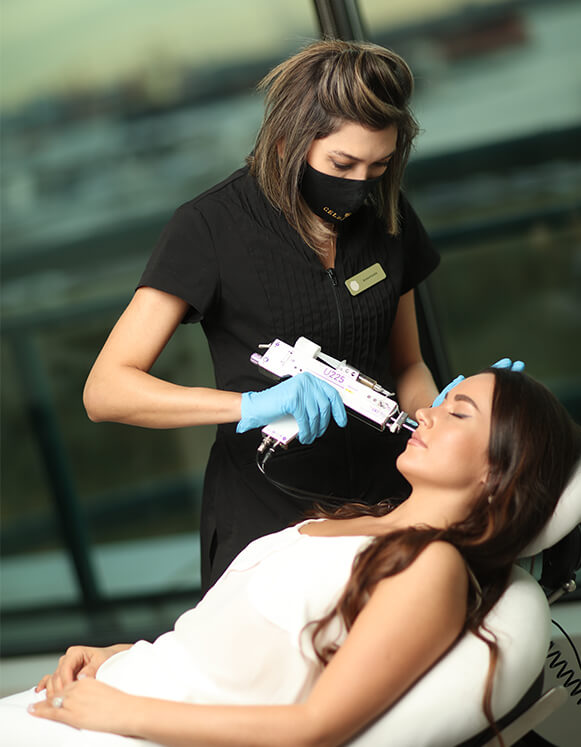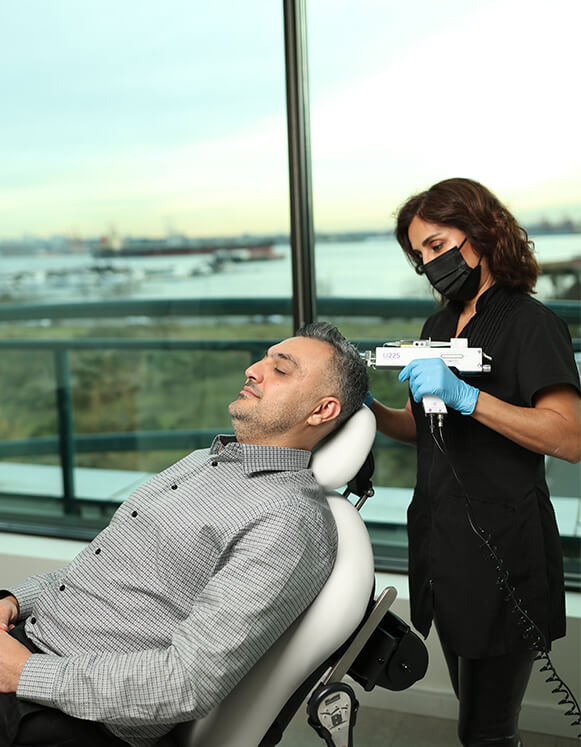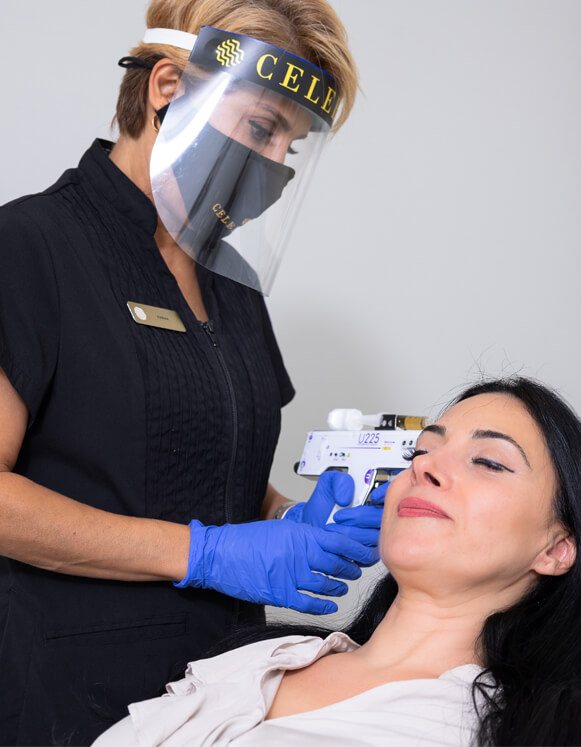PRP / Mesotherapy
$400.00 – $3,442.50
Platelet-rich plasma (PRP) is a hair restoration / skin rejuvenation system used to improve ones’ complexion by stimulating collagen with your own plasma and distributing it back into the skin. This treatment can be done on any part of the body to rejuvenate the skin for younger, fuller, tighter skin with an improvement in skin tone, texture, pore size, and fine lines. PRP can be used for hair restoration for hair loss or thinning.
To learn more about PRP click here
SKU:
N/A
Categories: Services, Acupuncture, Body Contouring, Facial, Laser Hair Removal, Microblading, Microneedling, PPR, Skin Resurfacing, Skin Tightening, Vaginal Rejuvenation
Tags: hair lose treatment, hair restoration, skin rejuvenation
Related products

Select options
This product has multiple variants. The options may be chosen on the product page
Vein Removal
$150.00 – $450.00
Select options
This product has multiple variants. The options may be chosen on the product page
Limelight IPL
$250.00 – $1,650.00
Select options
This product has multiple variants. The options may be chosen on the product page
Titan
$300.00 – $2,040.00
Select options
This product has multiple variants. The options may be chosen on the product page
Sublime
$120.00 – $2,040.00
Select options
This product has multiple variants. The options may be chosen on the product page
EMSCULPT NEO
$700.00 – $6,000.00
Select options
This product has multiple variants. The options may be chosen on the product page
Sublative
$150.00 – $2,040.00
Select options
This product has multiple variants. The options may be chosen on the product page
Microneedling + PRP
$1,000.00 – $3,825.00Our Team of highly trained technicians and doctors are available to provide services tailored to your needs.
Follow us on:
Usefull Links
Business Hours
| Monday | 10 AM – 5 PM |
| Tuesday | 10 AM – 7 PM |
| Wednesday | Closed |
| Thursday | 10 AM – 5 PM |
| Friday | 10 AM – 5 PM |
| Saturday | 10 AM – 4 PM |
| Sunday | Closed |
© Copyright 2025 Celebrity Laser & Skin Care. Designed and Developed by Marketing Planet Agency



